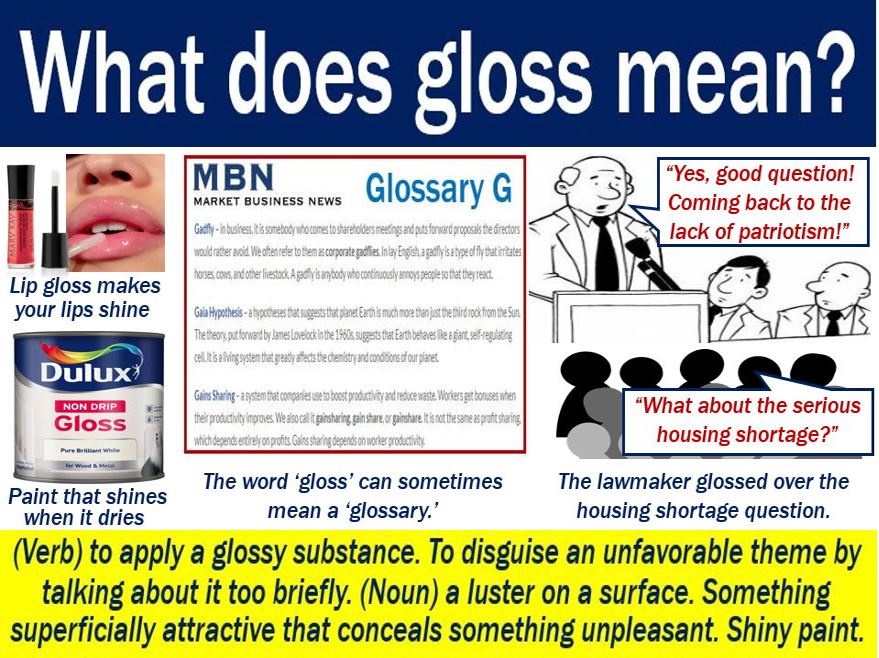Gloss – definition and meaning
The term gloss can be a verb or a noun and has several different meanings. As a verb, it can mean to apply a glossy substance to, i.e., to polish a smooth surface or make it shiny. The verb also means to disguise or conceal something unfavorable by talking about it briefly. For example, if a politician glossed over the housing shortage problem, it means he talked about it very briefly. In other words, he did not give it the attention and time it deserved when talking.
As a noun, the term means a luster or shine on a smooth surface. For example, if I say “her hair has a healthy gloss,” it means it has a nice shine.
Also as a noun, gloss may refer to something that seems superficially attractive, but serious problems exist below the surface.
What does it mean if somebody says “Beneath the gloss of thriving success was a life filled with tragedies”? It means that although the person’s life seemed successful, they had, in fact, suffered considerably.
Gloss paint
Gloss paint is a type of paint that forms a shiny surface after it has dried. According to Collins Dictionary, in British English, gloss paint is:
“A type of paint composed of pigments ground up in a varnish medium, which produces a hard, shiny, and usually durable finish.”

Lip gloss is a cosmetic that people, mainly women, apply to their lips. It provides a glossy finish as well as color (in most cases).
The term may also mean a glossary, which is an alphabetical list of words plus their meanings.
Etymology of gloss
Etymology means the study of the origin of words and how their meanings have evolved. Somebody who specializes in the origin of words is an etymologist.
As a noun, meaning ‘glistening smoothness, luster,” the term appeared in the English language in the 1530s. Etymonline.com says that the term came from Scandinavian, obsolete Dutch, or Middle High German.
The term emerged in the thirteenth century with the meaning “a word inserted as an explanation, definition, or translation.” It probably originated from Late Latin. In Late Latin, glossa meant “obsolete or foreign word.”
In the thirteenth century, the verb glosen appeared with the meaning “use fair words, speak smoothly, cajole, or flatter.” In the fourteenth century, it also meant to comment (on a text) or insert a word as an explanation. It came from Medievil Latin glossare, as well as Old French gloser.

